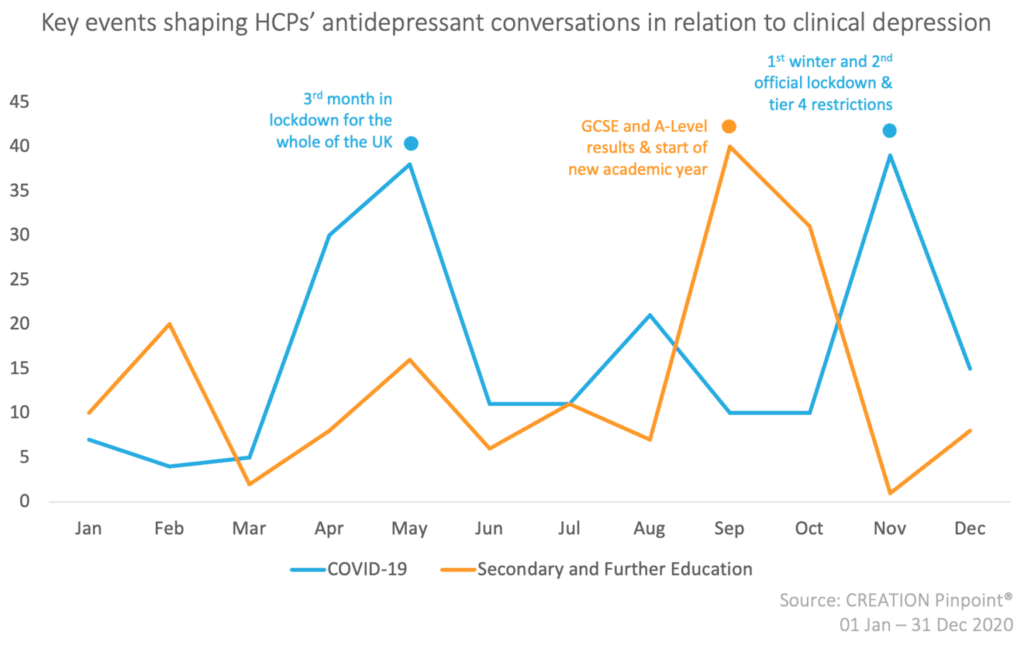World Mental Health Day 2021 – Exam results triggered flashpoints in pandemic mental health crisis, study shows

A new study reveals key flashpoints of concern among doctors and other healthcare professionals (HCPs) regarding public mental health and the prescription of antidepressants during the pandemic.
It shows how successive lockdowns, exam results, and the start of the new academic year triggered spikes of activity among doctors and other experts in the treatment of rising rates of depression.
The findings are produced by specialist digital healthcare insights and consulting firm, CREATION.co, and are based on an analysis of almost 6,000 online posts by 2,000 UK healthcare professionals discussing the use of commonly prescribed antidepressants (Selective Serotonin Reuptake Inhibitors) in the treatment of clinical depression from January to December last year.

The chart shows the impact of COVID-19 and how this triggered conversations among healthcare professionals regarding the impact of successive lockdowns, the economic recession, social distancing, and other restrictions on rates of depression and an increase in the use of antidepressants. It also highlights the impact of exam results, including GCSEs and A-Levels, the start of the new academic year and how these drove rates of depression and an increase in the use of antidepressants among young people.
The rise in rates of depression due to lockdown is well documented. The ONS estimates rates doubled from 2019 to 2020. Despite this increase, interestingly, online conversations about antidepressants among HCPs decreased by over 58 per cent from 2019 to 2020. In 2019, antidepressants were mentioned in over 9,200 online posts by more than 2,400 UK HCPs, whereas, in 2020, they were mentioned in 5,359 online posts by 1,814 UK HCPs. The authors cite the emergence of COVID-19 and how this dominated online commentary among healthcare professionals during 2020 shifting attention away from other areas of public health.
Commenting on the findings, Daniel Ghinn, CEO and Founder of CREATION.co said:
“While the impact of successive lockdowns and self-isolation on rates of depression and the prescription of antidepressants is well documented, the findings of this study offer greater granularity to our understanding of what drove this.
“Less well documented is the detrimental impact upon young people of uncertainty surrounding exam results – a knock on effect of their diminished capacity to learn and study due to lockdown.
“The study offers some insight into the valuable role social media can play in helping us to understand the needs and behaviours of groups. Online analysis of the views and sentiments of healthcare professionals offers huge potential for collecting real-world evidence for an array of different areas of public health. They can range from what’s driving greater demand (as in this case) to other areas, such as lesser-known side effects of drugs and unknown interactions. It represents a fast-growing tool in public health analysis whose significance is likely to grow in the coming decades.”











Responses